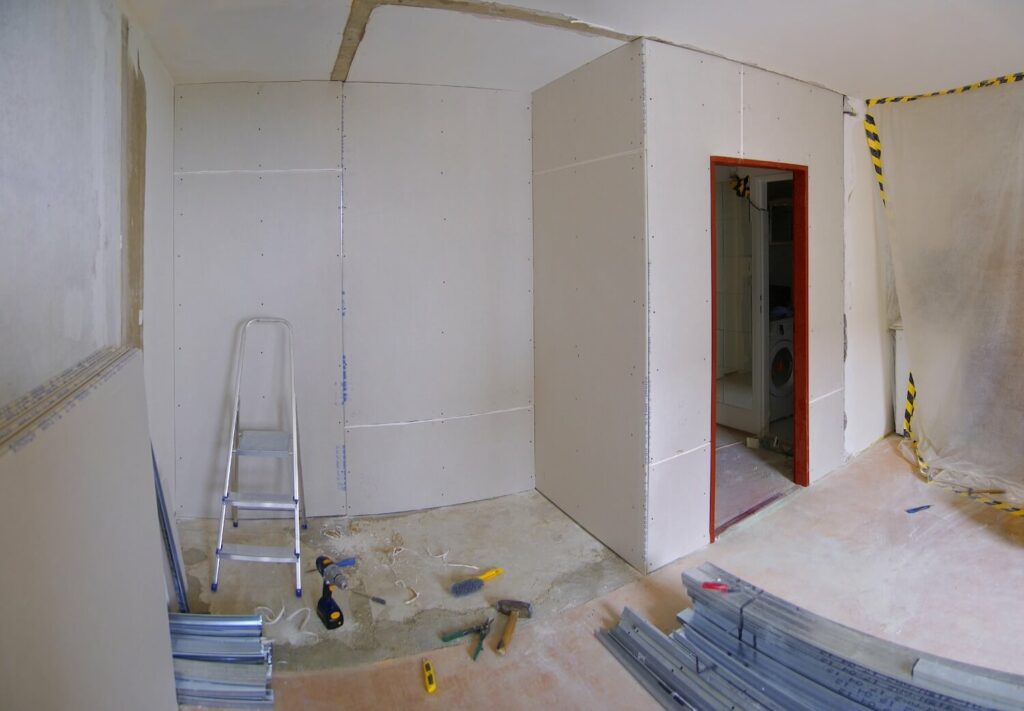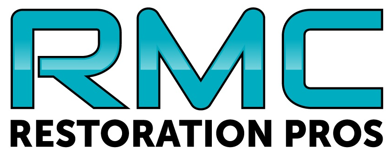
Experiencing damage to your property—whether from a natural disaster, fire, or severe weather—is an overwhelming and traumatic event. The emotional and financial impact can be significant, leaving you feeling lost and uncertain about the path forward. However, with the right approach, you can transform this tragedy into a triumph by hiring the best reconstruction professionals to help restore your property.
This comprehensive guide will provide you with in-depth information on how to navigate the process of hiring reconstruction experts for work, ensuring that your property is rebuilt to its former glory or even better.
Assessing the Damage and Setting Priorities
Before you can start the process of hiring reconstruction professionals, it’s essential to have a clear understanding of the damage and establish your priorities for the project.
Documenting the Home Damage
- Photographic Evidence: Begin by thoroughly documenting the damage with high-resolution photos and videos. Capture every affected area from multiple angles to provide a comprehensive view of the destruction. This visual documentation will be crucial for your insurance claim and will help reconstruction professionals assess the situation accurately.
- Detailed Notes: Alongside photos, take detailed notes about the damage. Include descriptions of any structural issues, water or fire damage, and affected areas. This information will help you communicate more effectively with potential contractors and ensure nothing is overlooked.
Professional Assessment
- Engage a Certified Inspector: Hire a certified property inspector or structural engineer to conduct a thorough assessment of the damage. This professional will provide you with a detailed report outlining the extent of the damage, potential hazards, and recommendations for repairs. Their assessment will be invaluable in planning your reconstruction project and obtaining accurate quotes.
- Obtain a Repair Plan: Based on the inspector’s report, develop a repair plan that prioritizes critical repairs and addresses both immediate and long-term needs. This plan will serve as a roadmap for your reconstruction project and help you communicate your requirements to contractors.
Researching Potential Reconstruction Professionals
Finding the right reconstruction professionals is crucial for ensuring a successful and smooth recovery process. Here’s how to research and evaluate potential candidates:
Seeking Recommendations
- Personal Referrals: Start by asking friends, family, and neighbors if they have recommendations for reputable reconstruction professionals. Personal referrals can provide valuable insights into a contractor’s reliability, quality of work, and overall reputation.
- Community Resources: Check with local community organizations or homeowner associations for recommendations. These groups often have experience working with contractors and can provide reliable referrals.
Online Research
- Review Platforms: Use online review platforms such as Google Reviews, Yelp, and Angie’s List to read reviews and ratings of potential reconstruction professionals. Pay attention to both positive and negative feedback to get a balanced view of each contractor’s strengths and weaknesses.
- Social Media: Explore social media platforms for additional reviews and recommendations. Many businesses maintain active social media profiles where you can find customer testimonials and examples of their work.
Verifying Credentials
- Licensing and Insurance: Ensure that the reconstruction professionals you are considering are properly licensed and insured. Check with local licensing boards and insurance companies to verify their credentials and ensure they meet industry standards.
- Certifications: Look for certifications from industry organizations such as the Institute of Inspection, Cleaning, and Restoration Certification (IICRC) or the National Association of Home Builders (NAHB). These certifications indicate that the professionals have undergone specialized training and adhere to high standards.
Evaluating Experience
- Relevant Experience: Seek out reconstruction professionals with experience handling projects similar to yours. Experience with specific types of damage (e.g., fire, water, storm) is particularly important, as it ensures they are familiar with the unique challenges and requirements of your project.
- Portfolio of Work: Request a portfolio of completed projects to review the quality of their work. This will give you an idea of their expertise and help you assess whether their style and standards align with your expectations.
Getting and Comparing Quotes
Once you have interviewed several reconstruction professionals, request detailed written quotes from each. Here’s how to evaluate and compare them:
Detailed Breakdown
- Break Down the Costs: Ensure that the quote includes a detailed breakdown of all costs, including labor, materials, and any additional expenses. This will help you understand what you are paying for and identify any potential hidden costs.
- Check for Inclusions: Verify that the quote covers all aspects of the project, including any necessary permits, inspections, and disposal of debris. A comprehensive quote should leave no room for surprises.
Comparing Quotes
- Compare Scope of Work: Compare the scope of work outlined in each quote to ensure that all aspects of the project are covered. Be wary of quotes that seem too low, as they may be incomplete or indicate lower-quality work.
- Evaluate Quality of Materials: Assess the quality of materials specified in the quotes. Higher-quality materials may come at a higher cost but can lead to a more durable and long-lasting reconstruction.
Evaluating Contract Terms
Once you’ve selected a reconstruction professional, carefully review the contract terms before signing. Here are some key aspects to consider:
Scope of Work
- Detailed Scope: Ensure that the contract clearly outlines the scope of work, including specific tasks, materials, and any special requirements. A well-defined scope of work will help prevent misunderstandings and ensure that all parties are on the same page.
- Change Orders: Understand the process for handling change orders or unexpected issues that may arise during the project. The contract should outline how changes will be managed and any associated costs.
Timeline and Deadlines
- Project Timeline: Verify that the contract includes a detailed timeline for the project, including start and completion dates. Ensure that the timeline is realistic and accommodates any potential delays.
- Completion Deadlines: Discuss and agree on completion deadlines for each phase of the project. Clear deadlines will help keep the project on track and ensure timely progress.
Payment Terms
- Payment Schedule: Review the payment terms and schedule to ensure they align with your budget and expectations. Be cautious of contracts that require large upfront payments or have unclear payment terms.
- Final Payment: Ensure that the final payment is contingent upon satisfactory completion of the project. Avoid making the final payment until you have inspected the work and are fully satisfied.
Dispute Resolution
- Dispute Resolution Clause: Check for a dispute resolution clause in the contract. This should outline the process for resolving any disagreements or issues that may arise during the project.
- Legal Recourse: Understand your options for legal recourse if disputes cannot be resolved through negotiation. A well-drafted contract should provide a clear path for addressing conflicts.
Managing the Reconstruction Project
Effective management of the reconstruction project is key to ensuring a successful outcome. Here are some tips for managing the process:
Communication
- Maintain Regular Communication: Stay in regular contact with the reconstruction professionals to stay informed about progress and address any concerns promptly. Regular communication will help prevent misunderstandings and ensure that the project stays on track.
- Document Communication: Keep detailed records of all correspondence with the contractor. This documentation will be valuable in case of any disputes or issues that arise during the project.
Monitoring Progress
- Conduct Inspections: Perform regular inspections of the work to ensure that it is being completed according to the agreed-upon standards and timeline. Address any issues or concerns as soon as they arise.
- Verify Compliance: Ensure that the work is compliant with local building codes and regulations. This may require inspections by local authorities or third-party inspectors.
Addressing Issues
- Resolve Issues Early: If any issues or concerns arise, address them with the reconstruction professionals as soon as possible. Early resolution will help prevent delays or additional costs.
- Review Change Orders: Carefully review any change orders or modifications to the project scope. Ensure that you understand the impact on the timeline and budget before agreeing to changes.
Keeping Records
- Maintain Detailed Records: Keep detailed records of all invoices, change orders, and correspondence. This documentation will be valuable for tracking expenses, resolving disputes, and ensuring that the project stays within budget.
- Store Documentation Safely: Store all project documentation in a secure location, such as a digital file or physical folder. Easy access to this information will help you manage the project effectively and address any issues that may arise.
Final Inspection and Completion
Once the reconstruction project is complete, conduct a final inspection to ensure that all work has been completed to your satisfaction. Here’s how to handle the final stages of the project:
Final Walkthrough
- Inspect the Work: Perform a thorough walkthrough of the property to inspect the quality of the work and ensure that it meets your expectations. Pay close attention to details and address any issues with the contractor.
- Verify Completion: Check that all agreed-upon tasks have been completed and that any required permits or inspections have been finalized.
Final Payment
- Review the Final Invoice: Review the final invoice to ensure that it reflects the agreed-upon scope of work and payment terms. Verify that there are no discrepancies or unexpected charges.
- Make Final Payment: Make the final payment only after you are satisfied with the work and all issues have been resolved. Retain copies of all payment receipts and documentation.
Post-Project Evaluation
- Provide Feedback: Provide feedback to the reconstruction professionals about your experience. This feedback can help them improve their services and assist future clients.
- Address Warranty Issues: If applicable, address any warranty issues or concerns with the contractor. Ensure that you understand the terms of any warranties or guarantees provided.
Conclusion
Hiring the best reconstruction professionals is a critical step in turning a challenging situation into a successful recovery. By thoroughly assessing the damage, researching potential candidates, interviewing professionals, comparing quotes, and carefully reviewing contract terms, you can make an informed decision that ensures your property is restored to its former glory—or even better.
Effective management of the reconstruction project, clear communication, and careful oversight will help you navigate the process smoothly and achieve a positive outcome. With the right team of reconstruction professionals, you can transform your property from tragedy to triumph and move forward with confidence.
Whether you’re dealing with damage from a fire, water, or storm, taking the time to select and manage the right reconstruction professionals will make all the difference in your journey toward recovery and rebuilding.
Remember, your property’s restoration is not just about repairing damage; it’s about reclaiming your space and turning a difficult experience into an opportunity for renewal and improvement.
